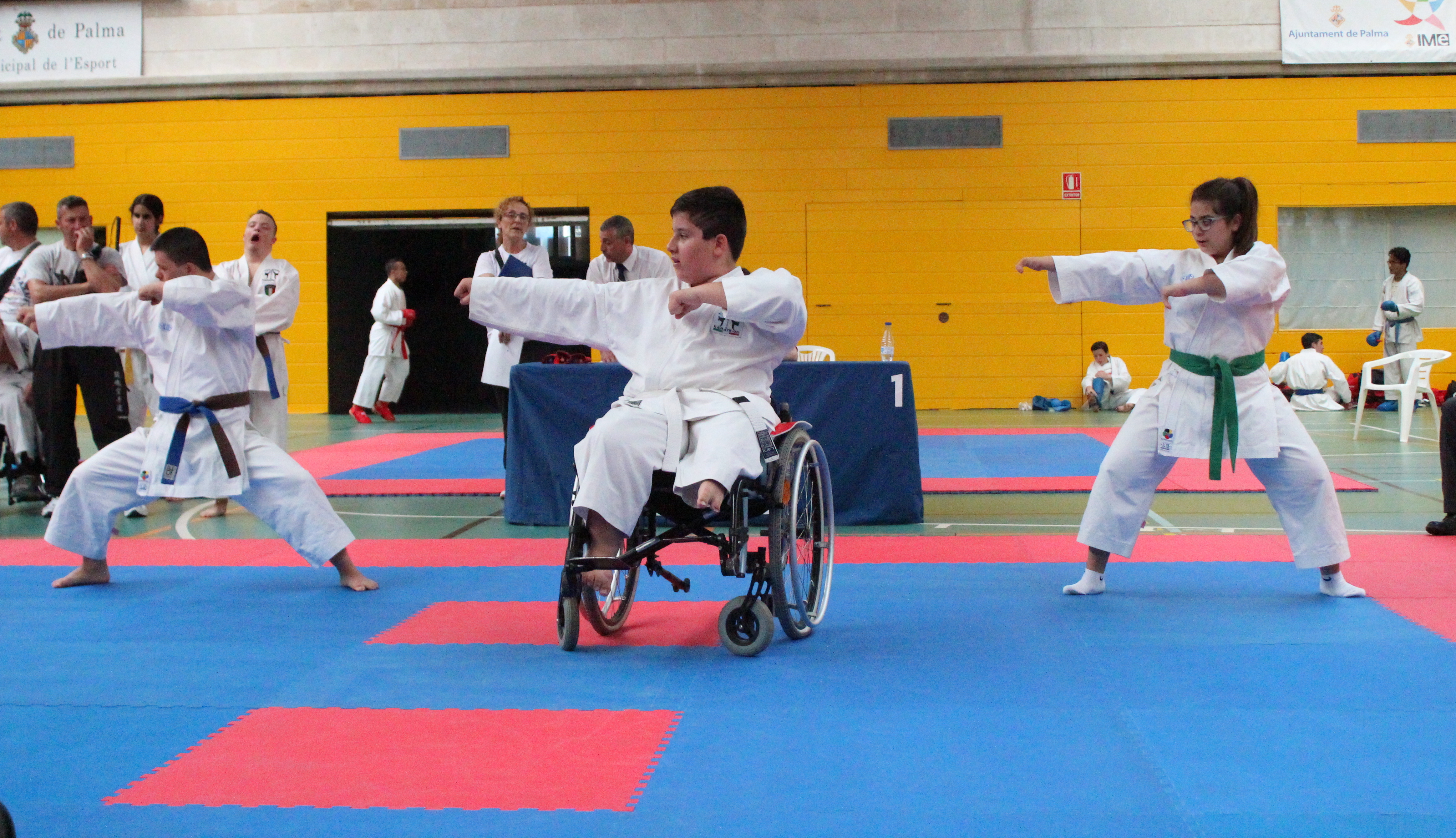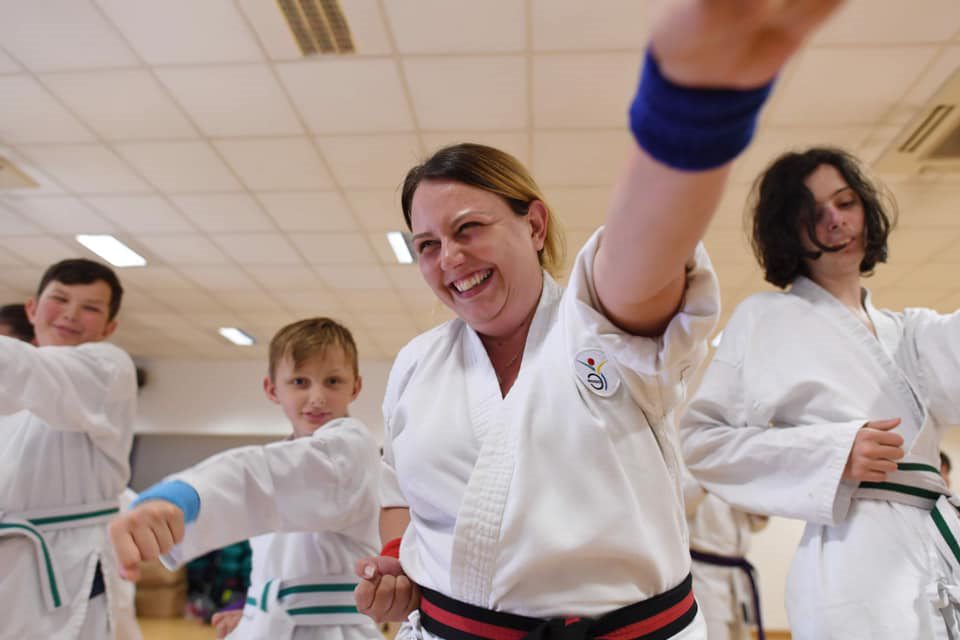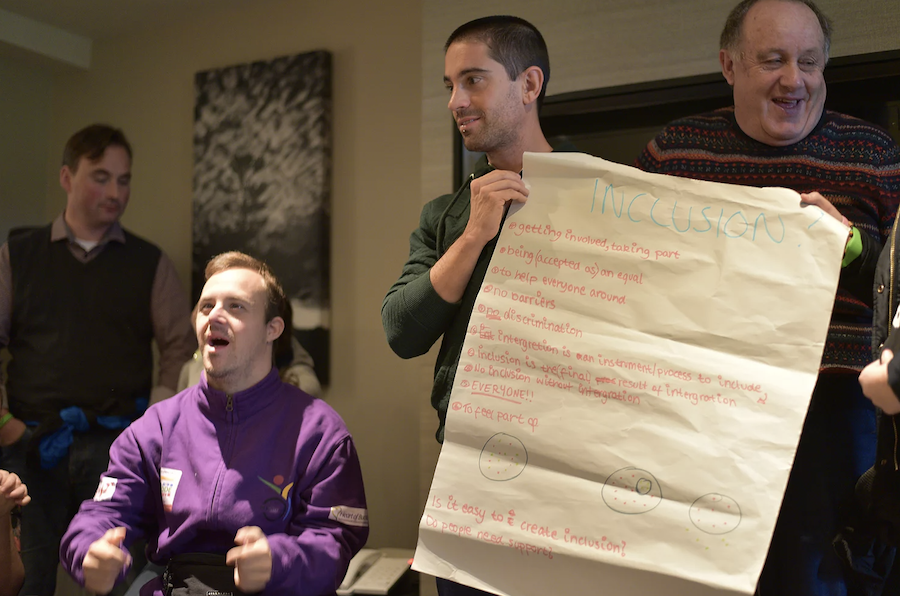
Paralympics In Focus: Ikkaido supporting people with disabilities through karate
August 13, 2021
In the last of our series on sport for development organisations who are making a change through new or newly reintroduced Olympic sports, and ahead of the Paralympics, which begin on August 24, we are taking a special focus on karate. Operating in the UK, past Beyond Sport Global Award entrants Ikkaido (the Disability Karate Federation) hopes that one day karate will also become a Paralympic sport with all elements of competition fully represented.
Having experienced first-hand how invaluable karate was to his physical and mental well-being, CEO Ray Sweeney founded The Disability Karate Federation - now named Ikkaido - in 2013 to help people with disabilities improve their lives through physical activity. Since its creation, it has developed and led initiatives and programmes that use inclusive karate as a tool to engage people with disabilities on a journey of empowerment.
Karate has been proven by multiple studies to improve the social and psychosocial skills of people with disabilities. Ikkaido shared that this is due to the philosophy that underpins Martial Arts - the Seven Virtues of Bushido (an unwritten Samurai code of conduct): Right Behaviour, Integrity and Honesty, Benevolence and Compassion, Determination, Sincerity, Right Action and Responsibility.
Sweeney, who has autism and visual impairments, saw the need for more inclusive coaching in karate to make it accessible to everybody. Ikkaido’s extensive work in educating coaches has shown that, with a well-trained inclusive coach, karate becomes a powerful tool for the development of young people, including improving the physical and mental mobility of people with a disability and developing opportunities in education to teach invaluable skills. In addition to this, karate also allows employment opportunities and the ability to develop entrepreneurship skills.

The Tokyo 2020 Olympics was huge for Ikkaido’s participants, representing the first step of global recognition of the sport. Sweeney hopes that its increasing popularity and recognition will increase the number of new participants.
“Having karate in the Olympics motivated many of them to watch the Olympics for the first time and see their sport represented at the pinnacle of elite Karate athleticism,” he shared. “They loved it and are trying to copy the movements in our sessions. They can see how truly fast and powerful an elite Karate athlete can be and want to be just like them.”
The organisation runs many programmes that encompass a pathway from empowerment to education, employment and ultimately eudaimonia (living well) - Ikkaido’s ‘6E’ strategy. These projects span bullying awareness, women's empowerment, financial learning and employability. The demographic of the participants vary from programme to programme, aligned with Ikkaido's philosophy of inclusion, which offers their services to everybody, rather than programmes for one gender or age that exclude everyone else.
One of these programmes is EmployABLE, a dedicated learner-led youth project based around the planning of a Martial Arts Festival. Launched in 2018, EmployABLE empowers young disabled participants by giving them a stronger sense of identity, competencies and strengths. Participants improve their knowledge of different tools, technology, communication skills and ultimately explore more aspirational career opportunities. The programme lasts two years and has recently come to completion. Ikkaido applies for funding every two years for the project.
“I have always suffered from depression, which has affected my ability to work in every job I’d had previously. The sense of community and safety, and the friendships I’ve made on this project have made me a happier person. It has opened my eyes to what life can be like when people work together and help each other,” shared an EmployAble programme participant.

In response to COVID, Ikkaido launched BOOST! and I-Ninja, which include post-pandemic holistic wellbeing interventions. BOOST! is a unique four-week course where learners are supported to design, carry out and review their own wellbeing programme to promote five key areas of wellbeing - physical, mental, nutritional, social and intellectual.
I-Ninja is a fully inclusive and accessible E-learning platform that provides martial arts coach education for people of all ages and different levels. According to Ikkaido, there is currently no other digital version of this that can be accessed safely during Covid-19 elsewhere. I-Ninja provides an opportunity to use karate to teach students about inclusion and promote physical activity.
For the past two years, with support from the Erasmus+ programme of the European Commission and the British Council, Ikkaido has been working on the development of Participation and Recreation through Inclusive Martial Arts Education (PRIMAE). It is a progressive suite of inclusive and accessible courses and qualifications that provide accessible eLearning and blended learning in how to facilitate sessions of safe, non-contact and inclusive martial arts.
Participation across the programs varies greatly. According to Sweeney, "EmployABLE brought together a group of 50 disabled and disadvantaged participants, but BOOST! will reach 250. PRIMAE is accessed on an E-learning platform, so there won't be an upper limit for participants."
“Next year we plan to visit a University in the US for several weeks and build relationships with Big Tech, including Facebook, Amazon, Qualcomm, Apple, Microsoft and Google. Together we will explore best practices in diversity and inclusion strategies to promote good inclusive practice.” With 12 full-time staff and partner relationships developing in over 20 countries, Ikkaido has grown considerably since our last interaction, with high hopes and plans to continue to grow.
Taking place from August 24 to September 5, the Tokyo Paralympic Games will encompass 22 sports. Badminton and taekwondo have been newly added to its programme.